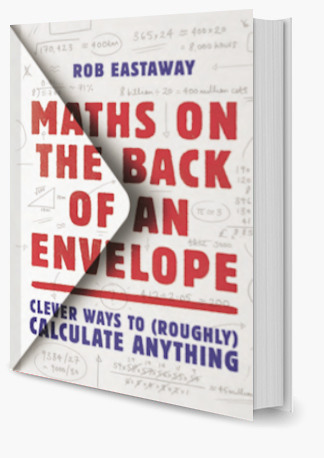
A book about mental arithmetic? By Rob Eastaway? Count me in! In my fuzzy mental Euler diagram of topics and authors, Maths On The Back Of An Envelope lies in the intersection of several ‘favourite’ circles.
Perhaps paradoxically, this meant I was expecting to be a little disappointed: how can a book, by an author I admire, on a topic I both love and have Strong Opinions about, live up to what I’d like it to be? Luckily, Eastaway’s writing is excellent, even taking into account that you expect it to be excellent.

